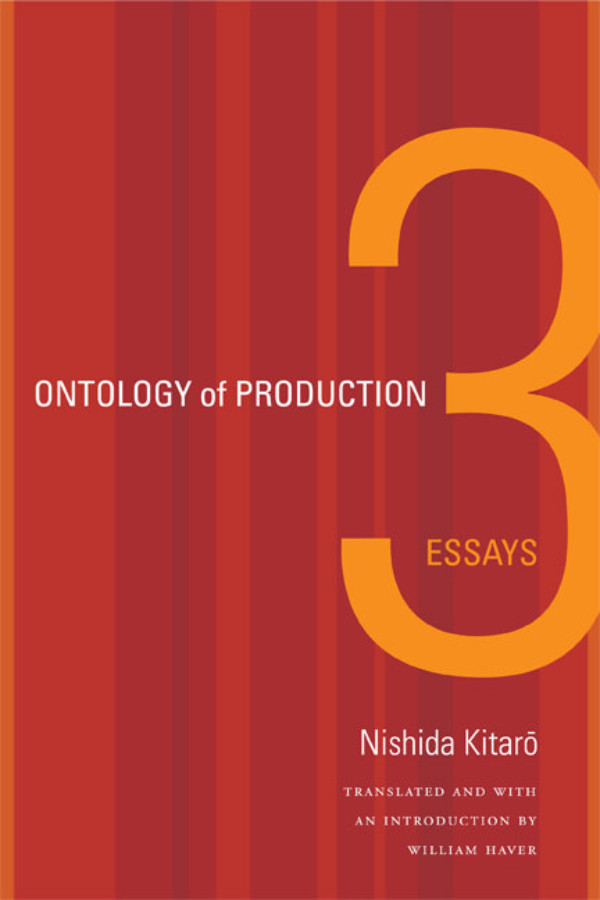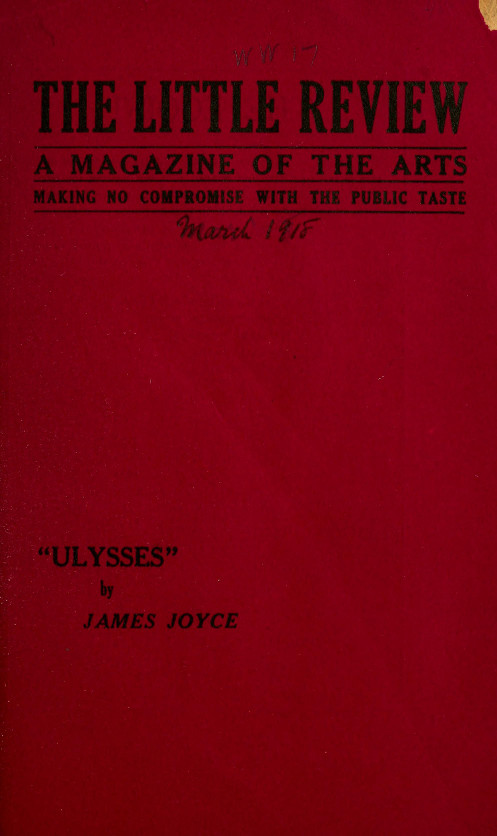Nishida Kitarō: Ontology of Production: Three Essays (2012)
Filed under book | Tags: · elan vital, marxism, ontology, philosophy, production

“Ontology of Production presents three essays by the influential Japanese philosopher Nishida Kitarō (1870–1945), translated for the first time into English by William Haver. While previous translations of his writings have framed Nishida within Asian or Oriental philosophical traditions, Haver’s introduction and approach to the texts rightly situate the work within Nishida’s own commitment to Western philosophy. In particular, Haver focuses on Nishida’s sustained and rigorous engagement with Marx’s conception of production.
Agreeing with Marx that ontology is production and production is ontology, Nishida in these three essays—”Expressive Activity” (1925), “The Standpoint of Active Intuition” (1935), and “Human Being” (1938)—addresses sense and reason, language and thought, intuition and appropriation, ultimately arguing that in this concept of production, ideality and materiality are neither mutually exclusive nor oppositional but, rather, coimmanent. Nishida’s forceful articulation of the radical nature of Marx’s theory of production is, Haver contends, particularly timely in today’s speculation-driven global economy. Nishida’s reading of Marx, which points to the inseparability of immaterial intellectual labor and material manual labor, provokes a reconsideration of Marxism’s utility for making sense of—and resisting—the logic of contemporary capitalism.”
Translated and with an Introduction by William Haver
Publisher Duke University Press, Durham and London, 2012
Asia-Pacific: Culture, Politics, and Society series
ISBN 0822351803, 9780822351801
208 pages
Review (David Baronov, Marx & Philosophy Review of Books)
Nishida Kitarō in Stanford Encyclopedia of Philosophy
PDF (updated on 2019-8-19)
Comments (3)Hannah Weiner: Code Poems from The International Code of Signals for the Use of All Nations (1982)
Filed under artist publishing, poetry | Tags: · code, communication, poetry

“I am interested in exploring methods of communication that will be understood face to face or at any distance, regardless of language, country or planet or origin, by all sending and receiving.
For three years I have used the international code of signals to make poems and poetry events, because this code makes available and possible the translation of simultaneous equivalents:
- Flashing light (by Morse): abstract visual,
- Sound signaling (by Morse): abstact aural,
- Live semaphore: motion,
- Fixed semaphore: motion,
- Flag hoists: concrete visual,
- Radio: electronic,
- Words (including equivalent translations in seven different languages.
[..] The amount of information available has more than doubled since WW2. In the next ten years it will double again. How do we deal with it?
- Do we use more than the 5% of the brain now in use?
- Do we process quicker?
- Do we decode information more and put it in another form (not language) so that the present brain can handle it?
- Is there a change in the neural circuits of the brain?
[..] At the moment I am interested in exploring methods of communication through space; considering space as space fields or space solids; through great distances of space; through small distances, such as the space between the nucleus and the electrons of an atom; through distances not ordinarily related to the form of communication used. I am interested in doing this so that we may develop methods of communication that will be understood face to face, or at any distance, regardless of language, country, or planet of origin, by all sending and receiving. For me this implies an understanding of four, five, (and six?) dimensional space; of how what can be transmitted through this space; of how these special dimensions relate to different “states of consciousness” and to different neurological patterns (if any).”
Quoted from Weiner’s “Trans-Space Communication” statement (published in July 1969) written to accompany her performances of Code Poems.
Publisher Open Book Publications, Barrytown/New York, 1982
ISBN 0940170035
28 pages
via waskleist
Weiner at EPC Buffalo
Weiner at PennSound
PDF (no OCR)
Comment (0)James Joyce: Ulysses (1918–) [EN, PL, RO, RU, DE, CZ, ES, PT, AR]
Filed under fiction | Tags:

Ulysses was first serialised in parts in the American journal The Little Review from March 1918 to December 1920, and then published in its entirety by Sylvia Beach in February 1922, in Paris. One of the most important works of Modernist literature, it has been called “a demonstration and summation of the entire movement” (Beebe). “Before Joyce, no writer of fiction had so foregrounded the process of thinking” (Kiberd).
Ulysses chronicles the passage of Leopold Bloom through Dublin during an ordinary day, 16 June 1904 (the day of Joyce’s first date with his future wife, Nora Barnacle). The title alludes to Odysseus (Latinised into Ulysses), the hero of Homer’s Odyssey, and establishes a series of parallels between characters and events in Homer’s poem and Joyce’s novel.
Ulysses is approximately 265,000 words in length and uses a lexicon of 30,030 words (including proper names, plurals and various verb tenses), divided into eighteen episodes. Since publication, the book attracted controversy and scrutiny, ranging from early obscenity trials to protracted textual “Joyce Wars.” Ulysses‘ stream-of-consciousness technique, careful structuring, and experimental prose—full of puns, parodies, and allusions, as well as its rich characterisations and broad humour, made the book a highly regarded novel in the Modernist pantheon. In 1998, the Modern Library ranked Ulysses first on its list of the 100 best English-language novels of the 20th century. Joyce fans worldwide now celebrate 16 June as Bloomsday.
In 1919, sections of the novel appeared in the London literary journal, The Egoist, but the novel itself was banned in the United Kingdom until the 1930s. In 1920 after the US magazine The Little Review serialised a passage of the book dealing with the main character masturbating, a group called the New York Society for the Suppression of Vice, who objected to the book’s content, took action to attempt to keep the book out of the United States. At a trial in 1921 the magazine was declared obscene and, as a result, Ulysses was banned in the United States. In 1933, the publisher Random House arranged to import the French edition and have a copy seized by customs when the ship was unloaded, which it then contested. In United States v. One Book Called Ulysses, U.S. District Judge John M. Woolsey ruled on December 6, 1933 that the book was not pornographic and therefore could not be obscene, a decision that was called “epoch-making” by Stuart Gilbert. The Second Circuit Court of Appeals affirmed the ruling in 1934. Contrary to popular belief, Ulysses was never banned in Ireland. (from Wikipedia)
Review (Joseph Collins, New York Times, 1922)
Ulysses read by Donal Donnelly and Miriam Healy-Louie, 27 hours (on UbuWeb)
Film adaptation, dir. Joseph Strick, 1967, 2 hours (on YouTube), commentary (Colm McAuliffe, The Quietus)
Correspondence between three Slavic translators of Ulysses: Maciej Slomczynski, Aloys Skoumal, and Viktor Khinkis
Ulysses (English, as published in The Little Review, 1918-20, compiled by Monoskop from scans from the Internet Archive, 2013, 101 MB)
Ulysses (English, Shakespeare & Co., Paris, 1922, added on 2014-3-7)
Ulysses (English, “pirated” edition, Two Worlds Monthly magazine, New York, 1926, added on 2014-3-7)
Ulysses (English, with an Introduction by Declan Kiberd, Penguin Classics, 1960/2000, PDF), EPUB
Ulisses (Polish, trans. Maciej Słomczyński, 1969, unpaginated)
Ulysses: A Critical and Synoptic Edition (Vol. 1), Vol. 2, Vol. 3 (English, prepared by Hans Walter Gabler with Wolfhard Steppe and Claus Melchior, Garland Publishing, 1984, DJVU)
Ulise (Romanian, trans. Mircea Ivănescu, 1984, unpaginated)
Улисс (Russian, trans. Виктор Хинкис and Сергей Хоружий, 1989, unpaginated)
Ulysses (German, trans. Hans Wollschläger, 1975/1996, unpaginated)
Odysseus (Czech, trans. Aloys Skoumal, 1976, unpaginated)
Ulises (Spanish, trans. Jose María Valverde, 1978/2010, EPUB)
Ulysses (Portuguese, trans. Caetano W Galindo, 1990/2009, unpaginated)
عوليس (Arabic, 1994, trans. طه محمود طه)

